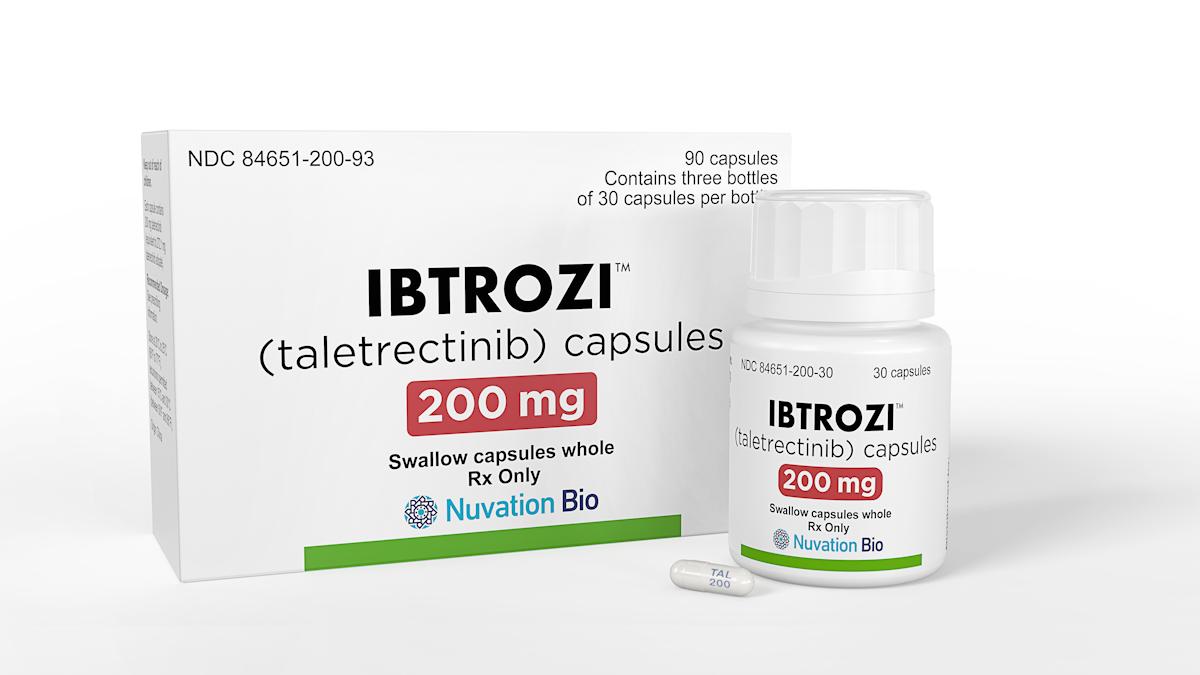FDA clears Nuvation's first product Ibtrozi, for lung cancer

Nuvation Bio is set to launch its first commercial product after the FDA approved its ROS1 inhibitor Ibtrozi as a treatment for ROS1-positive non-small cell lung cancer (NSCLC).
Chief executive David Hung – who formerly led Axovant and Medivation before forming Nuvation in 2018 – called the approval a "major milestone" in treatment, adding that Ibtrozi (taletrectinib) "has the potential to become a new standard for what targeted therapies can achieve in this type of lung cancer."
It is estimated that approximately 2% of the million or so people around the world who are diagnosed with NSCLC each year have ROS1-positive disease, which has a tendency to progress quickly and spread to other parts of the body, particularly the brain.
Ibtrozi has been held up as a next-generation ROS1 inhibitor that could improve on other drugs in the class, like Pfizer's first-to-market Xalkori (crizotinib), Roche's Rozlytrek (entrectinib), and Bristol Myers Squibb's Augtyro (repotrectinib).
Nuvation has suggested Ibtrozi can tackle tumours with resistance mutations, shows efficacy in brain metastases, and avoids neurological side effects linked to some rival drugs. About 35% of patients newly diagnosed with metastatic ROS1-positive NSCLC have tumours that have already spread to their brain, according to the company.
The drug has been approved on the back of two phase 3 trials – TRUST-1 and TRUST-2 – that showed an objective response rate (ORR) of 90% and 84%, respectively, when used as a first-line treatment, according to results reported at last year's ESMO congress. Among patients previously treated with other drugs, the ORRs came in at 52% in TRUST-1 and 62% in TRUST-2.
Taletrectinib was approved in China earlier this year as a second-line treatment for ROS1-positive NSCLC, but this is the first clearance of the drug elsewhere. The drug is marketed by Innovent Biologics in China, and is also under regulatory review in Japan.
Nuvation acquired rights to Ibtrozi via its acquisition of AnHeart Therapeutics in 2024 in a deal that also gave it an IDH1 inhibitor called safusidenib that could be a rival to Sanofi's recently approved Voranigo (vorasidenib) for IDH-mutant glioma, an aggressive and incurable form of brain cancer.
In March, Nuvation reached a deal with Sagard Healthcare Partners under which it will receive $250 million after Ibtrozi's approval, which will be used to fund its rollout, in return for a royalty stream on sales. For now, Nuvation hasn't given a launch date for the drug or revealed its pricing plans.
Additional competition in ROS1 could be on the way, meanwhile, as Nuvalent is preparing to file for approval of its inhibitor zidesamtinib in the middle of this year based on the results of the phase 1/2 ARROS-1 study.












